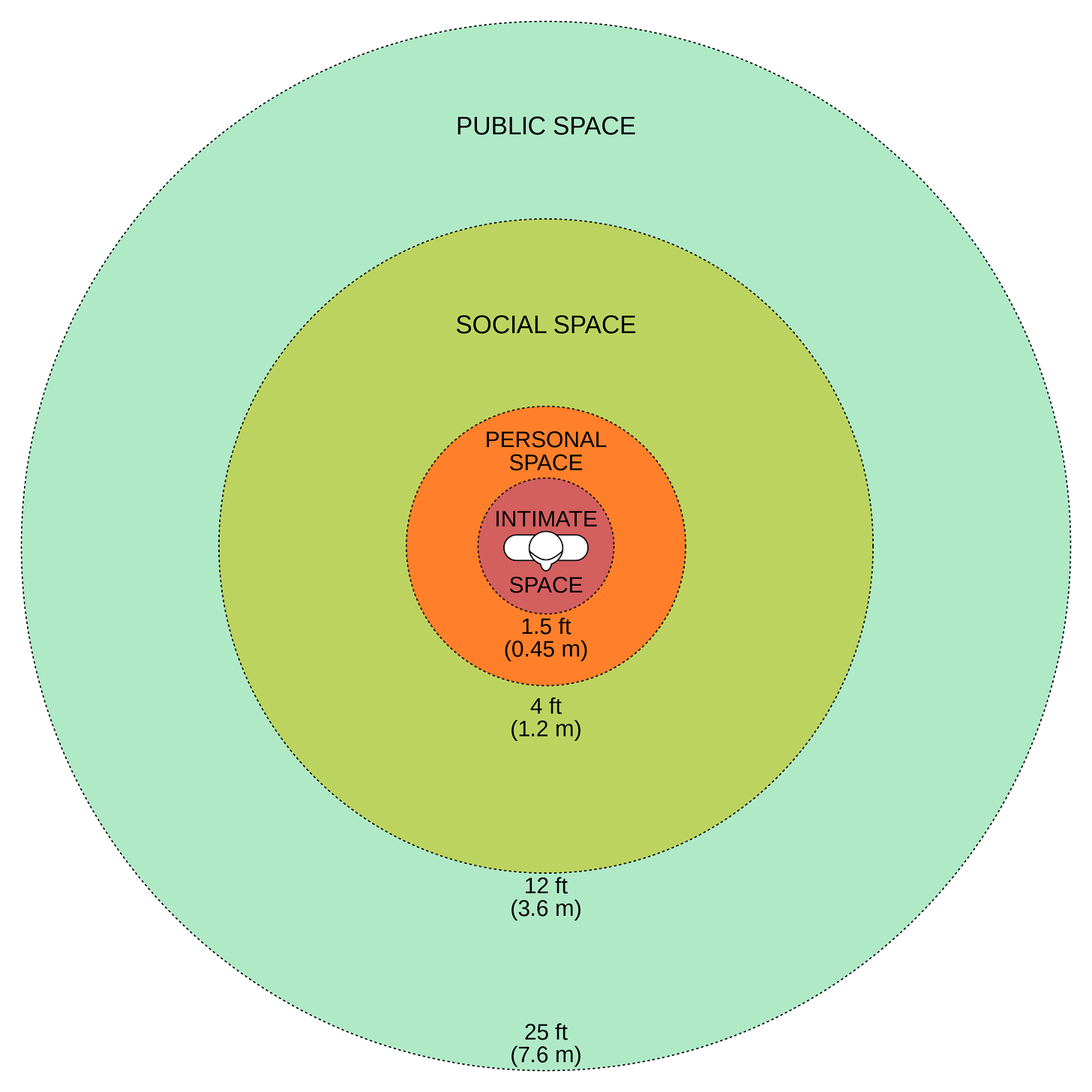Proxemics: Personal Space
Reservations Recommended, Chapter 5:
THE BLONDE on Matthew’s right scoots along the banquette as well as anyone can scoot on velvet. She leans toward Matthew and touches his arm. “She’s gorgeous,” she says. Matthew’s annoyed. This is a trespass, a violation of the notion of personal space, which may be the essential civilizing principle of modern urban life.
Proxemics is the study of human use of space and the effects that population density has on behaviour, communication, and social interaction. […]
Edward T. Hall, the cultural anthropologist who coined the term in 1963, defined proxemics as “the interrelated observations and theories of humans use of space as a specialized elaboration of culture.” […]
The distance surrounding a person forms a space. The space within intimate distance and personal distance is called personal space. The space within social distance and out of personal distance is called social space, and the space within public distance is called public space.
Personal space is the region surrounding a person which they regard as psychologically theirs. Most people value their personal space and feel discomfort, anger, or anxiety when their personal space is encroached. Permitting a person to enter personal space and entering somebody else’s personal space are indicators of perception of those people’s relationship. An intimate zone is reserved for close friends, lovers, children and close family members. Another zone is used for conversations with friends, to chat with associates, and in group discussions. A further zone is reserved for strangers, newly formed groups, and new acquaintances. A fourth zone is used for speeches, lectures, and theater; essentially, public distance is that range reserved for larger audiences.
Entering somebody’s personal space is normally an indication of familiarity and sometimes intimacy. However, in modern society, especially in crowded urban communities, it can be difficult to maintain personal space, for example when in a crowded train, elevator or street. Many people find such physical proximity to be psychologically disturbing and uncomfortable, though it is accepted as a fact of modern life.

Have you missed an episode or two or several?
You can begin reading at the beginning or you can catch up by visiting the archive or consulting the index to the Topical Guide.
You can listen to the episodes on the Personal History podcast. Begin at the beginning or scroll through the episodes to find what you’ve missed.
You can listen to “My Mother Takes a Tumble” and “Do Clams Bite?” complete and uninterrupted as audiobooks through YouTube.
You can ensure that you never miss a future issue by getting a free subscription. (You can help support the work by choosing a paid subscription instead.)
At Apple Books you can download free eBooks of Little Follies and Herb ’n’ Lorna.
You’ll find overviews of the entire work in An Introduction to The Personal History, Adventures, Experiences & Observations of Peter Leroy (a pdf document) and at Encyclopedia.com.


